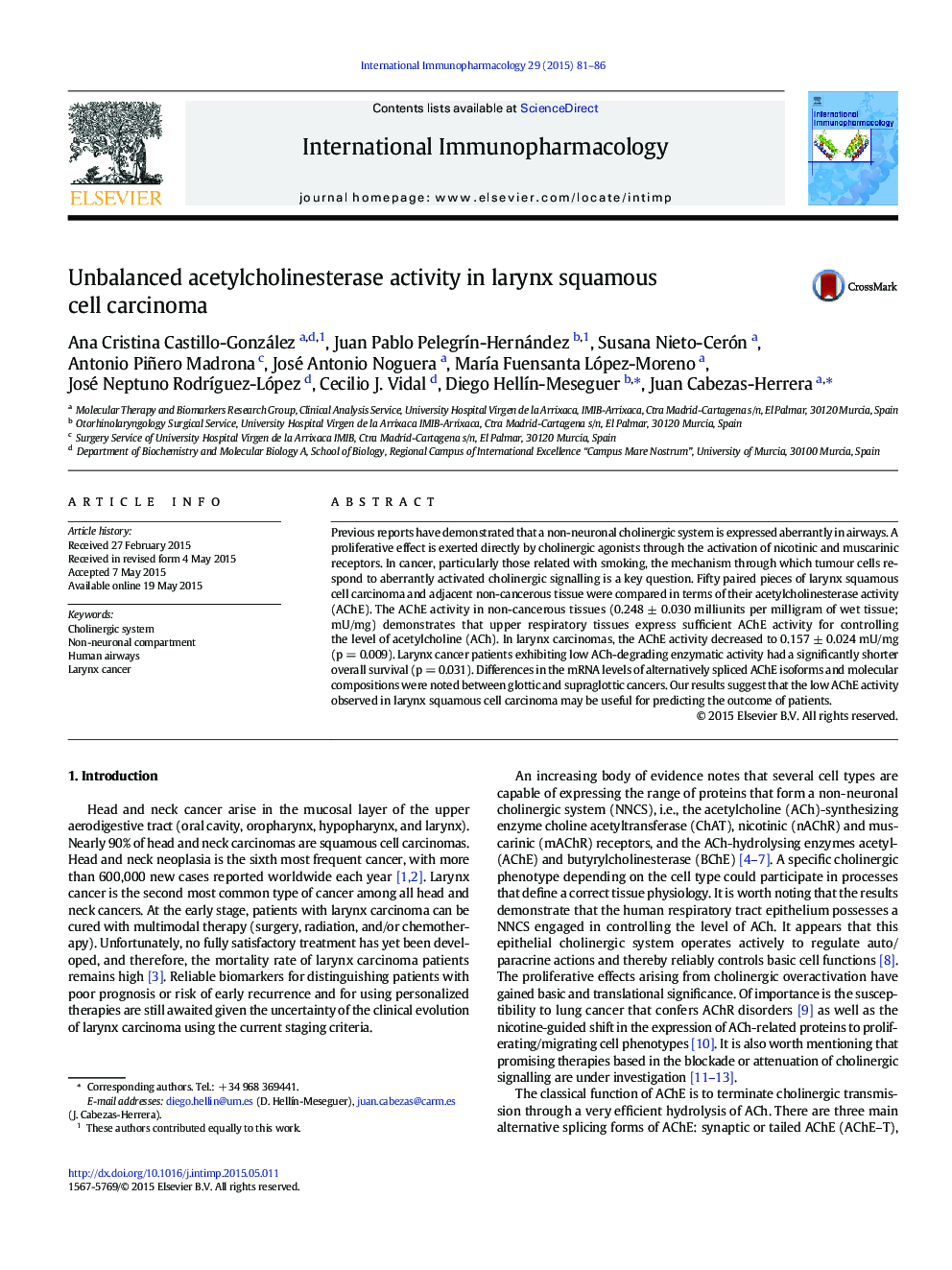| Article ID | Journal | Published Year | Pages | File Type |
|---|---|---|---|---|
| 5832060 | International Immunopharmacology | 2015 | 6 Pages |
â¢Changes in acetylcholinesterase activity and expression in human larynx have been analysed.â¢Non-cancerous adjacent tissues and carcinomas of glottis and supraglottis areas have been compared.â¢Acetylcholinesterase activity decreased by cancerâ¢Cancer altered the expression of acetylcholinesterase gene.â¢Acetylcholinesterase could be considered as a reliable prognosis predictor.
Previous reports have demonstrated that a non-neuronal cholinergic system is expressed aberrantly in airways. A proliferative effect is exerted directly by cholinergic agonists through the activation of nicotinic and muscarinic receptors. In cancer, particularly those related with smoking, the mechanism through which tumour cells respond to aberrantly activated cholinergic signalling is a key question. Fifty paired pieces of larynx squamous cell carcinoma and adjacent non-cancerous tissue were compared in terms of their acetylcholinesterase activity (AChE). The AChE activity in non-cancerous tissues (0.248 ± 0.030 milliunits per milligram of wet tissue; mU/mg) demonstrates that upper respiratory tissues express sufficient AChE activity for controlling the level of acetylcholine (ACh). In larynx carcinomas, the AChE activity decreased to 0.157 ± 0.024 mU/mg (p = 0.009). Larynx cancer patients exhibiting low ACh-degrading enzymatic activity had a significantly shorter overall survival (p = 0.031). Differences in the mRNA levels of alternatively spliced AChE isoforms and molecular compositions were noted between glottic and supraglottic cancers. Our results suggest that the low AChE activity observed in larynx squamous cell carcinoma may be useful for predicting the outcome of patients.
